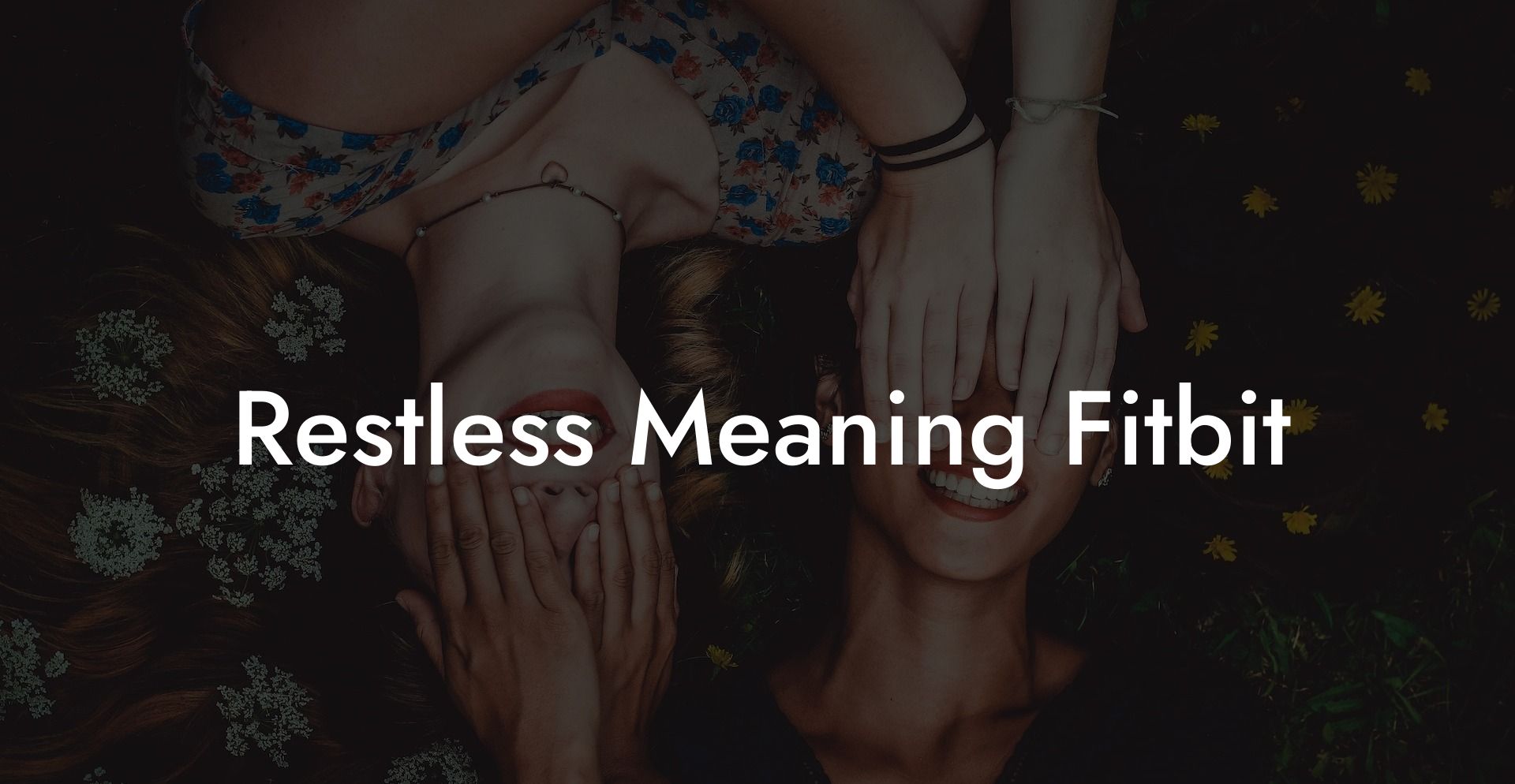Are you familiar with the term "restless meaning" on your Fitbit? If not, it's time to explore the many ways this handy little gadget helps track your sleep patterns. In this blog post, we will discuss what restless meaning entails, the benefits of understanding your sleep, and how you can make the most of this unique Fitbit feature. So grab a cup of tea, sit back, and learn how to improve your sleep quality with The Monogamy Experiment.
Restless Meaning Fitbit Table of Contents
Understanding Restless Meaning on Fitbit
Understanding Restless Meaning on Fitbit
A Fitbit is more than just a step counter; it's an all-in-one device that tracks various aspects of your health, including your sleep patterns. The term "restless meaning" refers to the number of times you are considered restless during your sleep. This data point is evaluated by monitoring your:
When you wake up in the morning and check your Fitbit app, you'll be able to see how much of your sleep was considered "restless." The more restless periods, the less restorative your sleep may be.
The Importance of Tracking Sleep Patterns
We all know that sleep plays a crucial role in our overall health and well-being, so why are we not paying as much attention to it as we do our diet and exercise? Tracking your sleep patterns can help you:
By knowing how often you are restless during your sleep, you can work on strategies to enhance your sleep quality and have a better understanding of your physical and emotional health.
How to Improve Your Sleep Quality
Now that you're aware of the restless meaning on your Fitbit, it's time to put that data to use. Here are some tips on how to improve your sleep quality:
Create a sleep-friendly environment:
A comfortable bed, cool temperature, and dark room can help set the stage for a good night's sleep.
Establish a bedtime routine:
Implement a calming activity, such as reading or meditating, 30 minutes before bed to signal your brain that it's time to sleep.
Limit device usage in bed:
Avoid stimulating activities that can increase alertness, like using a smartphone or watching TV.
Minimize caffeine and alcohol intake:
These substances can interfere with restorative sleep, so limiting consumption—especially in the hours leading up to bedtime—is crucial.
Exercise regularly:
Physical activity helps release endorphins, regulate circadian rhythm, and promote a more restful sleep.
Manage stress:
Chronic stress can negatively impact your sleep, so incorporating stress-management techniques is essential.
Restless Meaning Fitbit Example:
Jane, a 29-year-old software developer, has been feeling increasingly exhausted in recent months. She purchased a Fitbit to track her daily activities and is particularly curious about her sleep patterns. By monitoring her restless meaning, Jane realizes that she is consistently restless for more than an hour each night. To tackle this issue, she makes the following changes:
Within a few weeks, Jane notices a significant decrease in her restless periods and feels more refreshed and ready to tackle her day.
Learning about restless meaning on your Fitbit can prove invaluable when striving for better sleep quality. By tracking your sleep patterns and implementing healthy habits, you'll be on the road to a more restorative slumber in no time. We hope this guide has provided you with the information needed to improve your sleep and overall well-being. Please share this post and explore other helpful guides on The Monogamy Experiment blog for even more insights into living your best life!













